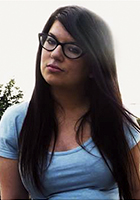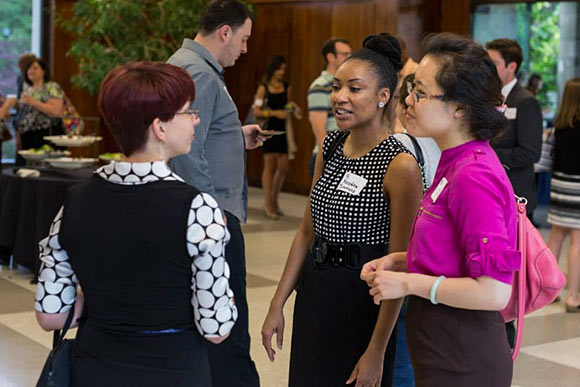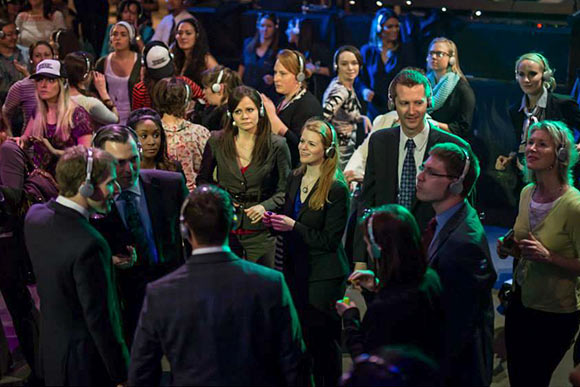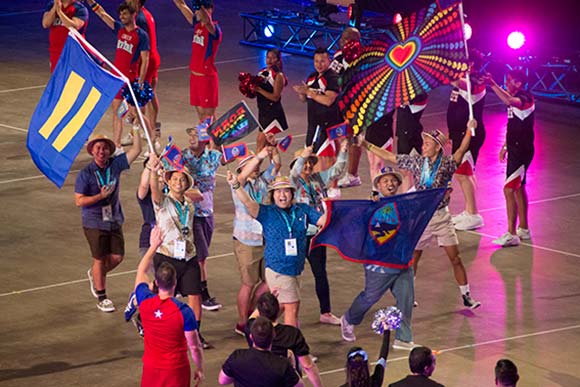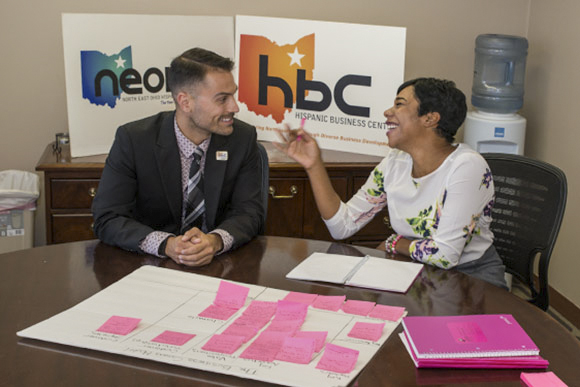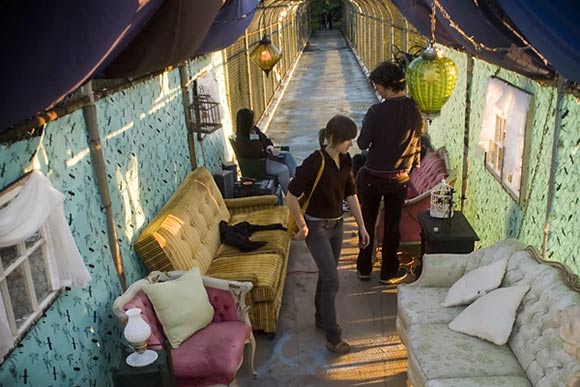city ambassadors: 7 people changing the conversation about cleveland
The activists, the boosters, the everyday hometown banter. To live in Cleveland is to talk about Cleveland.
Our intersection of that talk and action has come to define us and, more than any time in the recent past, all eyes have shifted their gaze towards us – for better or for worse.
From these dialogues have emerged tenacious leaders and bold-faced organizers who examine our city acutely, whether that means defining where we shine or sizing up where we’ve stumbled and looking for ways we can collectively push forward. Fresh Water spoke with a small but mighty group of individuals about how they continue to define the narrative of Cleveland at home and abroad.
Evelyn Burnett
Vice President of Economic Development, Cleveland Neighborhood Progress
Offering equal opportunities for economic advancement has always been at the root of Burnett’s work. Through financial education, micro-grant funding and community development, she bolsters small business and entrepreneurial efforts at the neighborhood level.
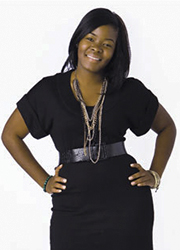 Evelyn BurnettHow are you sparking conversations about the city?
Evelyn BurnettHow are you sparking conversations about the city?
One of the important conversations in advancing the region is the misconceptions about economic opportunity and what that means. My work is about expanding access for people to meaningfully participate in the Cleveland economy, young or seasoned professionals. People of color, particularly, also need to have access to these opportunities. Our outreach programs ask, what does it mean to be a leader in your community? Because there is no prototype.
Another part is learning how to create conversations around change. What it looks like for our neighborhood’s socioeconomic demographics to shift and for new people to come in. Asking, what do those neighborhoods have to look like to attract new people and how do we integrate those new populations?
How can we improve in the ways we’re telling the story of Cleveland?
There are innumerable examples where we hear, “I could take my business to the next level if not for…”
Do we continue to not see women in certain fields because we don’t want to address certain stereotypes about what they can and cannot do? We’re in a place where we know entrepreneurship is key in Cleveland neighborhoods, particularly for minorities. It’s not about wanting special privileges, it’s about beginning at the starting line and not 20 feet back. That’s equity.Going to the same old set of folks who have the same old set of solutions is probably not going to fix a problem. It’s recognizing that a lot of times when you do community engagement it’s not going to be what you want to hear. Complex questions will always require complex solutions.
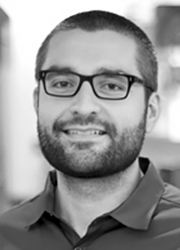 David JurcaDavid Jurca
David JurcaDavid Jurca
Associate Director, Kent State's Cleveland Urban Design Collaborative
A vocal advocate for creative city planning, Jurca spearheads many of CUDC’s public engagements efforts that bring vacant land reuse and cold climate design to the forefront.
How are you promoting the city and telling the story of Cleveland?
We've been fortunate to have several homegrown initiatives recognized at the national and international levels, which shined a spotlight on our city. For example, Pop Up City, a program we started in 2007 to activate vacant properties with temporary uses, was included in the 2012 Biennale of Architecture in Venice, Italy. More than 175,000 people visited the Biennale exhibit, which featured the pop-up events we used in our ongoing project to transform the lower level of the Detroit-Superior Bridge into a permanent public space.
How can more people get involved?
I would encourage fellow Clevelanders to seek out constraints and face our very real challenges rather than avoid them. If we reframe our particular problems as opportunities, they can continuously progress along the narrative arc to discover new peaks.
From my perspective, I'd like to see more Clevelanders involved in the process of transforming their own corner of the city. Small-scale, grassroots actions often add up to big changes. Anyone can make meaningful first steps through joining a block club, volunteering at a local school, attending public meeting or starting a neighborhood discussion to re-imagine a vacant lot.
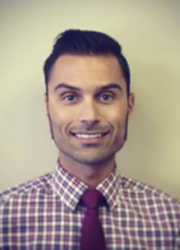 Jason Estremera
Jason Estremera
Jason Estremera
President, Young Latino Network
It took some getting used to when Cleveland native Estremera transplanted from Chicago back to his hometown. Last year, he took on the role as Director of Business Services for the Hispanic Business Center, where he overlooks education and outreach programs. He also serves as President of the Young Latino Network.
How are you promoting the city and telling the story of Cleveland?
Everything we host and promote through both organizations has a reach beyond the city and I often receive emails from people who are surprised that Cleveland has so many culturally enriching activities and groups. The leadership opportunities in Cleveland all became these amazing stories that I was able to share with friends back in Chicago. To say that they were taken by surprise is an understatement.
What barriers do our city faces in achieving more positive recognition by outsiders?
We need to support initiatives and legislation that allow for diversity and for people to contribute to the overall health and vibrancy of our economy, such as immigration reform and marriage equality. Ohio, for as much progress as we have made, is still lacking in areas that prevent others from living freely.
When the Gay Games came to town, the Young Latino Network partnered with the InterReligious Task Force on Central America to put together a meet-and-greet and panel discussion on sexuality within the context of various Hispanic cultures. Most recently, we worked with the Hispanic Roundtable to bring Aldo Bello, a movie producer, to Cleveland while he was touring his documentary on the Dream Act. We were able to make this a free community event with a panel discussion with some of Cleveland's top immigration reform advocates.
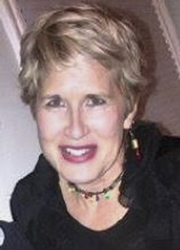 Mary Zaller
Mary Zaller
Mary Zaller
Development Officer, Equality Ohio and Director of Development, Gay Games 9
Mary Zaller spent three years rallying for Cleveland to become the next host of the international Gay Games. Her hard work paid off. This August, Cleveland hosted competitors from 51 countries and 48 states.
What are you doing to spark conversations about the city?
Before we were named the 2014 hosts, we had journalists come in for familiarization trips. We took them around the city so they would write about the gay community in Cleveland and convince the LGBT community from around the world to come here for the games.
We worked really hard to make sure Cleveland was welcoming when all these people did arrive. Making sure people felt comfortable, that they weren’t going to be looked at in any negative light. We did a lot of diversity training with different hotel groups and businesses in partnership with the Diversity Center of Northeast Ohio and the LGBT Center of Cleveland and Plexus, the LGBT chamber of commerce.
What can we do to improve?
As development officer for Equality Ohio, I know that one thing that can keep people from coming to Ohio is that we have anti-LGBT laws. Not
just laws pertaining to marriage, but we also don’t have equal employment and housing laws. Get involved with changing laws and changing minds. If for no other reason than to treat everyone equally, it’s good for business. If we want to attract and retain the brightest talent, we have to have laws that attract people to come here. Even non-LGBT residents want to know they’re living somewhere that’s accepting of all. Volunteering and training with organizations like ours teaches the easy ways people can get started.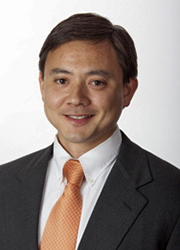 Evan Ishida
Evan IshidaEvan Ishida
Co-Founder, KnowledgePost and Board Chair, Engage! Cleveland
Through his role as board chair of Engage! Cleveland, Ishida acts to combat brain drain by engaging young professionals in Greater Cleveland.
How are you promoting the city and telling the story of Cleveland?
We know that one of the most attractive things to young professionals and millenials is having opportunities to make a difference. I feel that Cleveland should be known as the best city where someone can make a positive impact. At Engage! Cleveland we are trying to do this by making it easier to connect YPs with organizations, initiatives, assets and institutions where they find meaning. It has been amazing to see how the word is spreading as more young people are sharing their experiences in getting involved via social media.
What can we do to achieve more positive recognition by outsiders?
Getting more of our community leaders to move from a “prove it” to a “do it” mentality. If Cleveland is to become known as a great place to make a difference, then we should have a supportive infrastructure to help ideas (businesses, nonprofits, projects, etc.) get off the ground. People are proving that new ideas can be implemented throughout the city, so we need to accelerate the pace at which we sponsor projects, fund initiatives, allocate resources, involve diverse perspectives, and share ideas. This will help accelerate improvements, especially in our neighborhoods and schools.
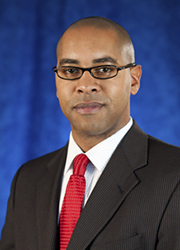 JulianRogers
JulianRogers
Julian Rogers
Director of Community Partnerships, Cleveland State University
After a long history of education advocacy, Rogers left his Cuyahoga County Council position in 2011 to begin working with CSU. As an integral part of Cleveland State’s rapidly expanding downtown presence, Rogers connects faculty and students with initiatives and programs in the city.
What can we do to achieve more positive recognition by outsiders?
To truly become a destination city, we must continue to develop our human capital and improve our public education system. Without quality schools and safe neighborhoods, the residents of Cleveland will not be the strong champions for the city that we need to talk the city up.
How can more people get involved?
We have an abundance of non-profit organizations that are committed to helping our children in our region that are in constant need of support. Organizations such as Open Doors Academy, Rainey Institute, Big Brothers and Big Sisters of Greater Cleveland and the Cleveland Kids in Need Resource Center all do an excellent job of helping children perform better in school and develop into productive citizens. More people should get involved by finding one of these organizations in their own neighborhood and volunteering, donating, joining the board or supporting the programming.
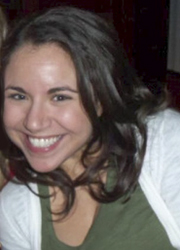 Jamie Pawlak
Jamie Pawlak
Jamie Pawlak
Interaction Cleveland Concierge, Destination Cleveland
Talking about what it’s actually like to live in Cleveland is one of the most conducive ways to derail rampant misapprehensions about the city. Pawlak communicates one-on-one with people considering coming to Cleveland to share her firsthand experiences.
How are you promoting the city and telling the story of Cleveland?
I enhance the visitor experience for travelers before they get to Cleveland. I help plan their trip to the city by recommending an authentic Cleveland experience. Some visitors think they’re here only for one reason, but I take the opportunity to tell them there is so much more.
What can we do to be more involved?
I’m reminded of a quote about Cleveland I recently found from former Mayor Newton D. Baker Jr. in 1907. “The greatness of a city does not consist in its buildings either public or private, nor in its institutions and benevolences, but rather in the intensity and intelligence with which its citizens love the city as their home."
